Why You Can’t Pet a Service Dog
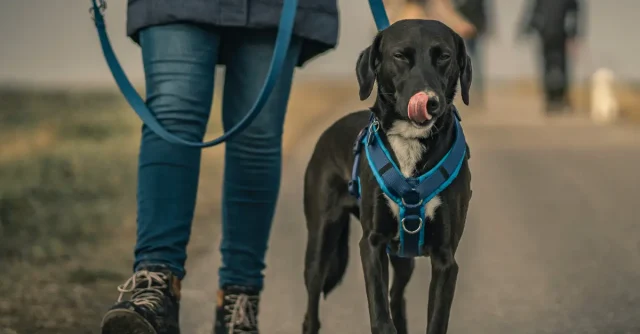
You should never pet a service dog without permission because your friendly pat could stop that dog from alerting someone about an upcoming seizure, helping someone navigate safely across the street, or providing deep pressure therapy during a panic attack. These aren’t just cute pets – they’re partners with important jobs, and distracting them could put someone in real danger. Think of it this way: you wouldn’t interrupt a lifeguard watching the pool or a paramedic helping someone. Service dogs deserve the same respect when they’re working.
If you’re a service dog handler, using the right gear, like clearly marked vests, patches, and ID cards, can really cut down on strangers trying to pet your dog. These visual signals help people understand that your dog is working, not just out for a walk. Check out our guide on how to stop people from petting your service dog if you want more tips.
In this article:
- Reasons to not pet a service dog
- Service dog identification makes a difference
- The right way to interact with service dogs
Reasons to Not Pet a Service Dog
Here are all the reasons why you should never pet a service dog:
Distractions Can Be Dangerous
When someone distracts a service dog, it’s not just annoying — it can have real consequences for the person who depends on that dog. It’s like changing the channel while someone’s watching important instructions or pulling away someone’s cane while they’re walking — what seems small to you could create a serious problem for someone else.
Here are some examples of how petting a service dog on duty can harm the handler:
Missing Medical Alerts
Jackson’s dog, Willow, alerts him when his blood sugar gets too low. At a restaurant, a child ran up to pet Willow, who was distracted and missed the signs of Jackson’s dropping blood sugar. By the time Jackson noticed something was wrong, he already felt dizzy and needed emergency help. Service dogs often detect things by smell, and petting them can make them miss these important scents.
Guide Work Problems
Sophia is blind and gets around with her guide dog, River. While crossing a street, someone reached out to pet River, causing him to move off course. Sophia tripped over a curb and sprained her ankle. This caused her to be afraid of going out for weeks afterward.
Delayed Responses
In an emergency, every second counts. If a service dog is distracted by a friendly stranger, it might take extra time to refocus on their person — time that could make a big difference during a medical crisis.
Interrupted Mental Health Support
Alex has severe anxiety and relies on his service dog, Bailey, to provide deep pressure therapy when he feels a panic attack coming. While shopping, someone approached Bailey, pulling her attention away. Without Bailey’s quick response, Alex had a full panic attack in the middle of the store.
Disturbed Balance and Mobility Issues
For people who need their dogs for physical support, a distracted service dog can cause falls or accidents. Even a moment of distraction can remove a critical source of stability that someone depends on.
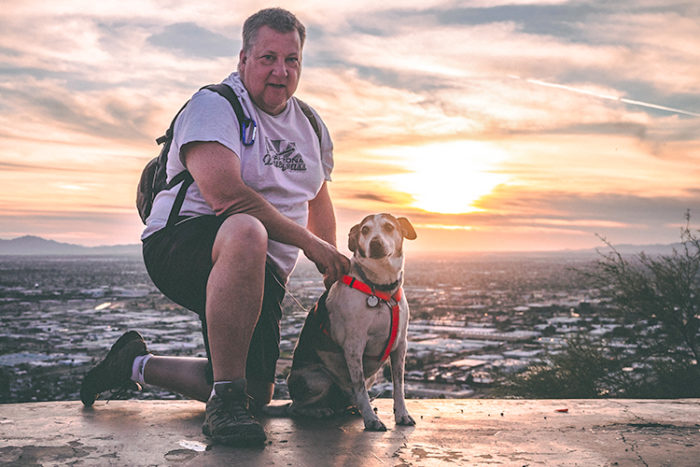
Training Gets Messed Up Over Time
Service dogs train for up to two years, and training a service dog can cost thousands of dollars. When strangers pet them, it can undo all that hard work:
Training Problems
- Confused Priorities
Liam’s mobility service dog, Luna, started getting increasingly distracted during outings. Even though Luna wore a “DO NOT PET” vest, strangers kept petting her anyway. After months of this, Luna began looking for attention from everyone instead of focusing on helping Liam. They had to get expensive retraining to fix the problem. - Loss of Confidence
Service dogs need to feel confident about their jobs. When constantly interrupted, they can become unsure about when they should be working versus when it’s okay to socialize. This doubt can make them hesitate during important moments.
Long-Term Issues
- Public Access Problems
A service dog that gets distracted too often might start developing bad habits in public, like sniffing around or seeking attention. This can lead to businesses questioning whether it’s really a trained service dog. - Expensive Fixes
When a service dog’s training gets compromised, fixing it can cost hundreds or thousands of dollars and takes time. This disrupts the daily routine and independence of the person who relies on the dog.
The Impact on the Handler Goes Beyond Safety
The problems don’t stop with physical safety concerns:
Mental Burden
- Always On Alert
Service dog handlers often feel exhausted from constantly watching for people who might approach their dog. It’s mentally draining always to be ready to stop strangers while trying to go about normal activities. - Anxiety About Going Out
Many handlers develop anxiety about taking their service dogs to public places, knowing they’ll face multiple interruptions. Some start avoiding certain places altogether, leading to isolation.
Social Challenges
- Privacy Issues
Nora has an invisible disability and uses her service dog for medical alerts. Whenever someone approaches to pet her dog, they ask questions like, “What’s wrong with you?” or “What does your dog do?” This pressures Nora to share private medical information just to justify why she has a service dog. - Constant Explanations
Connor and his service dog, Ember, were stopped over and over during one shopping trip by people wanting to pet Ember. Each time, Connor had to explain why this wasn’t allowed. A quick 30-minute errand turned into a two-hour ordeal filled with the same conversation repeated many times. - Unwanted Attention
Service dog handlers often feel like they’re on display. Even friendly comments like, “What a beautiful dog!” or “Is that a service dog?” draw attention to them when they just want to blend in like everyone else.
Daily Life Disruptions
- Everything Takes Longer
Routine tasks like grocery shopping or doctor’s appointments can take twice as long because of interruptions from strangers. These delays can mess up medication schedules or cause missed appointments. - Less Independence
The whole point of having a service dog is to gain more independence. When the dog gets distracted too often, that independence suffers. Some handlers end up needing to bring a friend or family member along on outings to help manage interactions with the public — defeating the purpose of having a service dog in the first place.
Service Dog Identification Makes a Difference
Clear identification can really cut down on unwanted interactions:
- Service Vests with “SERVICE DOG” clearly marked
- ID Cards with your service dog’s photo to quickly show when needed
- Informational Tags for your dog’s vest or leash with brief explanations
- Educational Cards to hand out instead of having long conversations
Many service dog handlers find that these tools help reduce problems and make public outings easier for both them and their dogs.
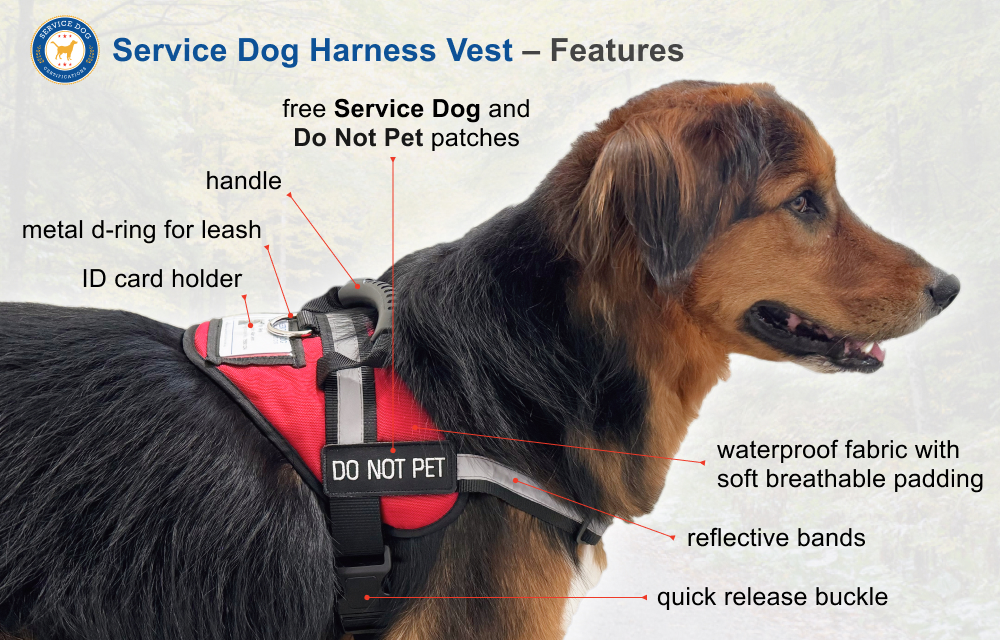
The Right Way to Interact with Service Dogs
If you see a service dog and their handler:
- Pretend the dog isn’t there
At the grocery store, a cashier made Mark’s day by talking directly to him without even mentioning his service dog lying quietly at his feet. This professional interaction let his dog stay alert and focused on its job. - Talk to the person, not the dog
When meeting new neighbors, Kayla appreciated how they introduced themselves to her first and maintained eye contact instead of immediately crouching down to her service dog, as most people do. - Keep your pet away
In a waiting room, a considerate pet owner noticed Rachel with her service dog and immediately moved to the opposite side, keeping her puppy from trying to play with the working dog — exactly the respectful distance needed. - Teach others politely
When a parent saw their child running toward Ben’s service dog, they gently caught them and explained, “That dog is working and wearing a special vest. We need to leave it alone so it can do its important job.” Ben smiled gratefully at this perfect teachable moment.
It might seem harmless to pet a cute service dog, but the consequences can range from annoying to life-threatening. By respecting these working dogs and their handlers, you’re helping make sure they can do their important jobs safely and effectively, keeping their handlers independent and safe.
About the Author: The writing team at Service Dog Certifications is made up of folks who really know their stuff when it comes to disability laws and assistance animals. Many of our writers and editors have service dogs themselves and share insights from their own experiences. All of us have a passion for disability rights and animals.
1 comment
Leave a Reply Cancel reply
Latest Posts
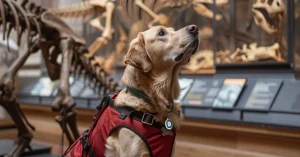
Can you bring a service dog to a museum?
Yes, you can bring your service dog to the museum! All the major U.S. museums welcome guests with service animals in accordance with the Americans with Disabilities Act (ADA). There are some areas, however, that might be off-limits. Here’s what you should know if you plan to spend a day at the museum with your […]

Read More
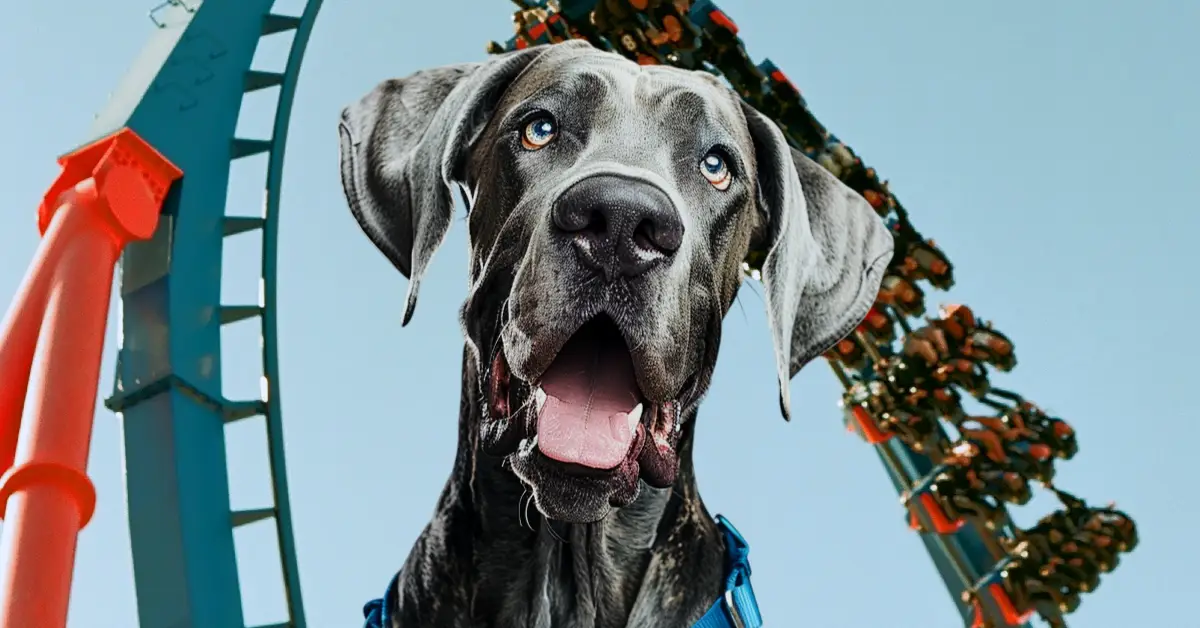
How to Bring a Service Dog to Six Flags Magic Mountain
Service dogs are welcome at Six Flags Magic Mountain so long as they are, according to Six Flags, “trained to do work or perform tasks for people with disabilities.” Of course, your dog must be housebroken and remain on a leash or harness and under your control while at the park — and the park […]

Read More
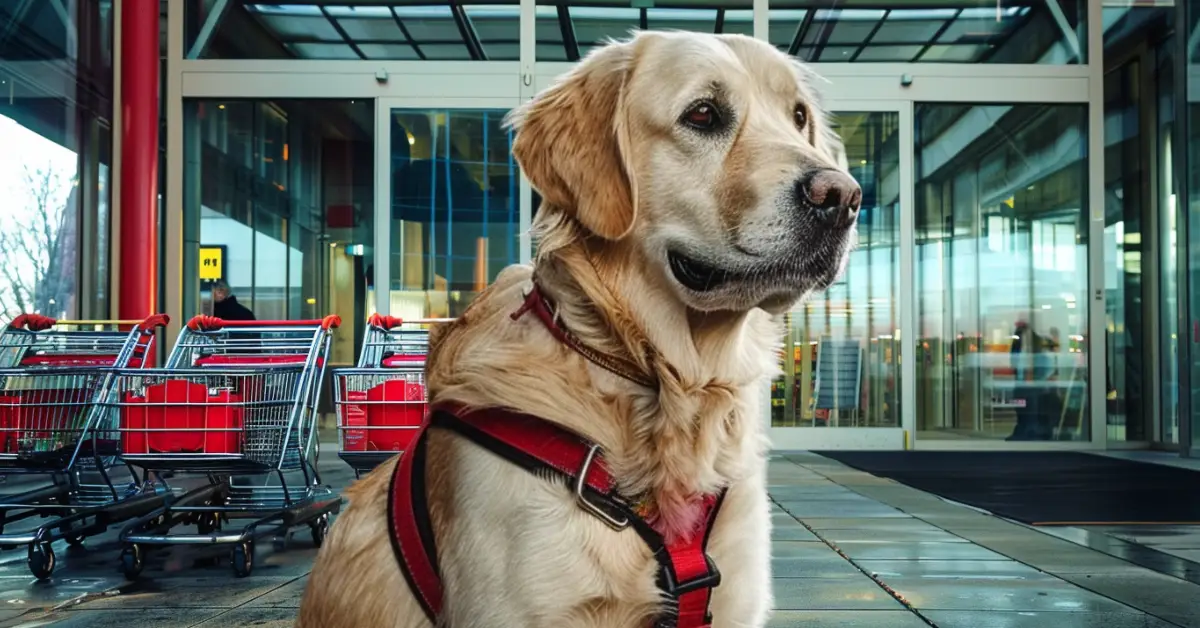
When Stores Can Refuse Your Service Dog
According to the Americans with Disabilities Act (ADA), service dogs should be allowed into any store most of the time. A store owner can legally exclude a service dog if they are actively growling, snapping at, or frightening customers, or if the dog is obviously out of the control of its owner. Ordinary behaviors — […]

Read More
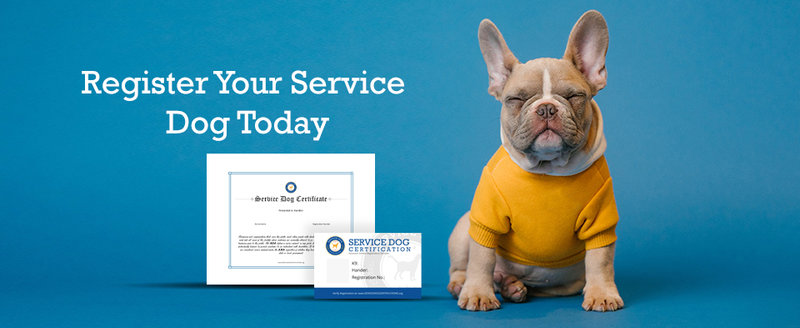
I really appreciate the information about service dogs and the law. I’ve always heard that you weren’t supposed to pet them and figured it was up to the holder.